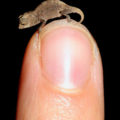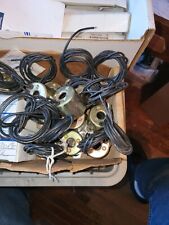
The body’s inability to grow new tissue as it ages might be overcome by increasing the activity of a gene known as FoxM1B, according to a study published in the Sept. 25 issue of the Proceedings of the National Academy of Science. By increasing the activity, or expression, of this gene in aged experimental mice, Robert Costa, professor of molecular genetics at the University of Illinois at Chicago College of Medicine, and his colleagues were able to restore the regeneration of liver cells to rates of growth typical of young mice.
Because in humans the FoxM1B gene exists not only in the liver but also throughout the body, the researchers believe their discovery might one day be used in gene therapy in the elderly to restore their ability to replace old cells with new ones and rejuvenate worn-out organs. Cells divide normally when stimulated by FoxM1B, making it an ideal candidate for use in therapeutic intervention, according to Costa.
According to Costa, earlier studies had shown that age-related defects in the proliferation of cells found in connective tissue throughout the body are associated with diminished expression of FoxM1B. Defects in cell proliferation lead to chromosomal abnormalities and mutations, which in turn lead to a variety of health problems found in older people, including infections, organ failure, Alzheimer’s disease, dementia and an increased incidence of cancer.
In the elderly, cells grow slowly in response to injury and do not proliferate adequately to replenish damaged cells in the skin, hair, muscle and other tissues. As a consequence, injuries take longer to heal, and certain physical changes occur-for example, the skin wrinkles and muscles atrophy.
In the present study, aged mice were fitted with a “promoter” to increase expression of the FoxM1B gene. After undergoing a partial hepatectomy, in which a portion of the liver was removed, the mice rapidly regenerated new tissue, unlike typical aged mice.
The DNA in the regenerating liver cells replicated normally, and cells divided just as they do in the livers of young mice that have been injured. Furthermore, laboratory studies showed that increasing expression of the FoxM1B gene in aged mice restored as well the activity of numerous other genes involved in cell division.
“FoxM1B clearly regulates the expression of a whole network of genes that are required for cells to multiply,” said Costa.
Importantly, Costa added, the study indicated that the FoxM1B gene also controls exit from mitosis, that is, the completion of cell division. Without that, cells would be abnormal, failing to divide and retaining too many copies of DNA – defects commonly seen in cancers.


















Comments are closed.